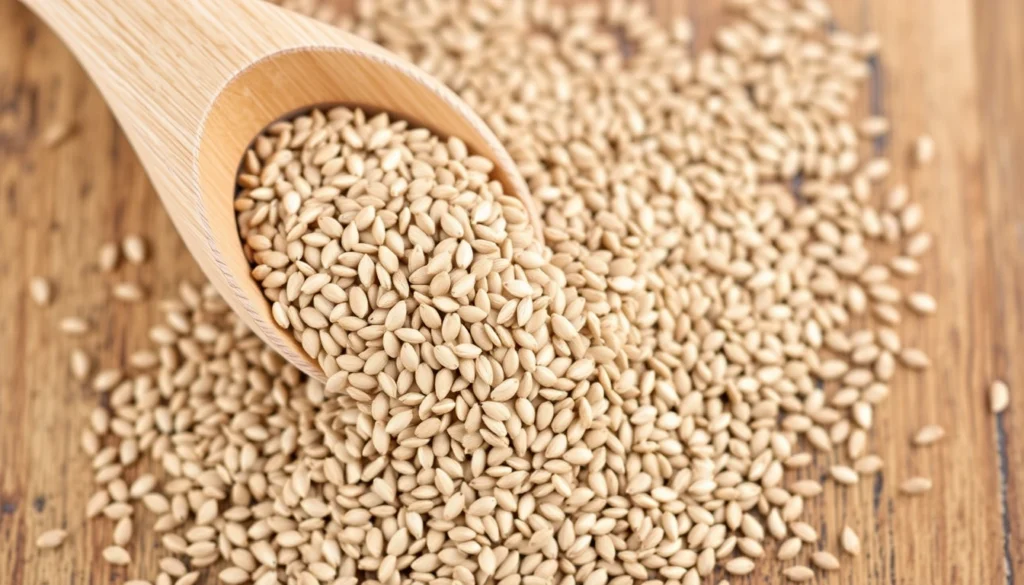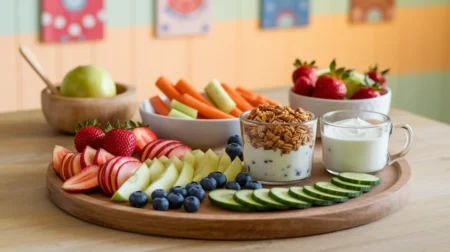Flax Seeds: The Nutritional Powerhouse You Need in Your Diet
Key Takeaways:
- Flax seeds are rich in omega-3 fatty acids, fiber, and lignans, making them a superfood for heart and digestive health.
- These tiny seeds are versatile and can be easily added to smoothies, salads, and baked goods.
- Regular consumption of flax seeds supports weight management, heart health, and hormonal balance.

Nutritional Profile of Flax Seeds
Flax seeds pack a punch of nutrients in a small serving. Here’s a breakdown of the nutrients found in 1 tablespoon (10 grams) of whole flax seeds:
| Nutrient | Amount |
|---|---|
| Calories | 55 kcal |
| Protein | 1.8 grams |
| Fat | 4.3 grams |
| Omega-3 Fatty Acids | 2,350 mg |
| Fiber | 2.8 grams |
| Lignans | 85.5 mg |
Rich in Omega-3 Fatty Acids
Flax seeds are one of the richest plant-based sources of alpha-linolenic acid (ALA), an essential omega-3 fatty acid that contributes to heart and brain health. Omega-3s are known to reduce inflammation and support cardiovascular function.
Health Benefits of Flax Seeds
Incorporating flax seeds into your diet offers numerous health benefits, many of which are supported by scientific research:
1. Heart Health
Flax seeds have been shown to reduce blood pressure and cholesterol levels due to their high content of omega-3 fatty acids, lignans, and fiber. Studies suggest that consuming flax seeds may lower LDL (bad) cholesterol by up to 20%.
2. Digestive Health
The high fiber content in flax seeds promotes healthy digestion and prevents constipation. Soluble fiber helps regulate bowel movements and supports gut health by nourishing beneficial gut bacteria.
3. Weight Management
Flax seeds are a great addition to any weight management plan due to their fiber content, which promotes satiety and reduces hunger. The fiber also helps regulate blood sugar levels, preventing spikes in insulin.
How to Use Flax Seeds in Your Diet
Flax seeds are incredibly versatile and can be easily incorporated into many recipes. Here are some simple ways to add them to your daily diet:
1. Smoothies and Shakes
Adding a tablespoon of ground flax seeds to your morning smoothie boosts its fiber and omega-3 content. The seeds blend well and don’t alter the taste significantly.
2. Baking
Flax seeds can be used in baking as an egg substitute for those following a vegan diet. Simply mix one tablespoon of ground flax seeds with three tablespoons of water to replace one egg in a recipe.
3. Salads and Yogurt
Sprinkling whole or ground flax seeds over salads, yogurt, or oatmeal is an easy way to boost their nutritional value. Flax seeds add a mild, nutty flavor without overpowering the dish.
Ground vs. Whole Flax Seeds: What’s the Difference?
When choosing between ground and whole flax seeds, it’s essential to know how they differ in terms of nutrition and digestibility.
| Type | Benefits | Considerations |
|---|---|---|
| Whole Flax Seeds | Retain freshness longer, good for storage | Harder to digest, pass through the system mostly intact |
| Ground Flax Seeds | Easier to digest, better absorption of nutrients | More prone to oxidation, shorter shelf life |
Ground flax seeds are more easily digested, meaning your body can absorb more of their beneficial nutrients. It’s best to buy whole flax seeds and grind them as needed to ensure freshness.
Are Flax Seeds Safe for Everyone? Considerations and Precautions
While flax seeds are a healthy addition to most diets, there are some considerations:
Phytoestrogens in Flax Seeds
Flax seeds contain lignans, a type of phytoestrogen that mimics the hormone estrogen. While these compounds may help balance hormones and reduce the risk of hormone-related cancers, individuals with hormone-sensitive conditions should consult a healthcare provider before consuming large amounts of flax seeds.
Potential Allergies
Though rare, some individuals may be allergic to flax seeds. Symptoms of an allergic reaction may include itching, swelling, and difficulty breathing. If you suspect an allergy, discontinue use and seek medical advice.
Flax Seeds vs. Chia Seeds: Which is Better?
Both flax seeds and chia seeds are superfoods, but how do they compare nutritionally? Here’s a quick comparison:
| Nutrient | Flax Seeds (1 tbsp) | Chia Seeds (1 tbsp) |
|---|---|---|
| Calories | 55 kcal | 58 kcal |
| Omega-3 Fatty Acids | 2,350 mg | 2,500 mg |
| Fiber | 2.8 grams | 4.1 grams |
| Protein | 1.8 grams | 2 grams |
Both seeds offer similar health benefits, but chia seeds have slightly more fiber, while flax seeds contain a higher concentration of lignans. Including both in your diet can provide a broader range of nutrients.
Conclusion
Flax seeds are a nutritional powerhouse, offering essential omega-3 fatty acids, fiber, and lignans that support heart health, digestion, and weight management. Whether you choose whole or ground flax seeds, incorporating them into your meals is a simple way to boost your nutrient intake. From smoothies to baked goods, flax seeds are a versatile and affordable addition to any diet.
FAQ
Q: How much flax seeds should I eat daily?
A: It’s generally recommended to consume 1-2 tablespoons of ground flax seeds daily to enjoy their health benefits.
Q: Can I eat raw flax seeds?
A: Yes, you can eat raw flax seeds, but it’s better to consume them ground to ensure proper digestion and nutrient absorption.
Q: How should I store flax seeds?
A: Whole flax seeds can be stored in a cool, dry place for up to a year. Ground flax seeds should be kept in an airtight container in the refrigerator and used within a few weeks.
Q: Can flax seeds help with hormone balance?
A: Yes, flax seeds contain lignans, which are known to help balance estrogen levels in the body. However, it’s always best to consult with a healthcare professional before making dietary changes for hormone-related conditions.










